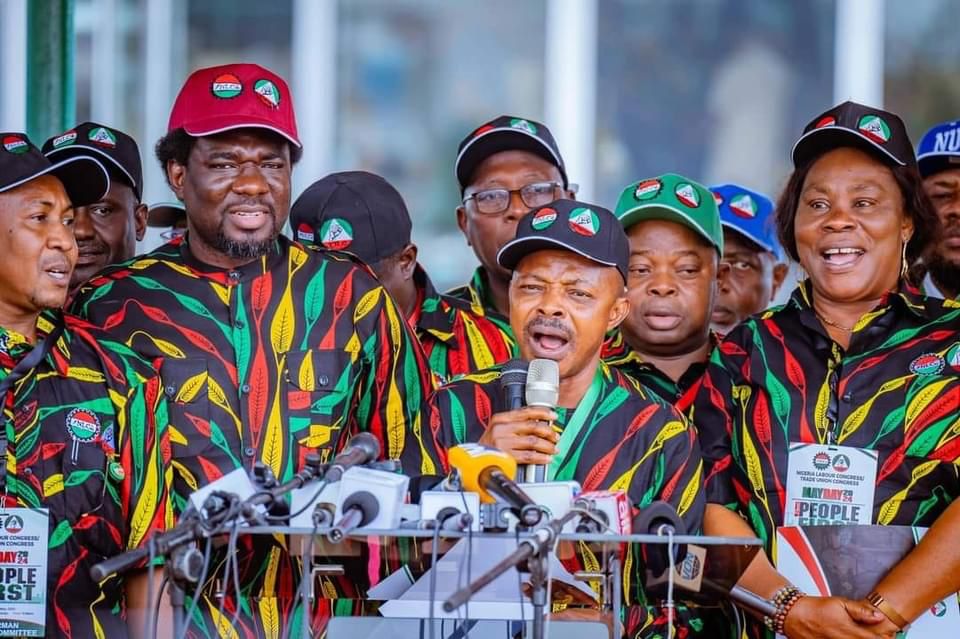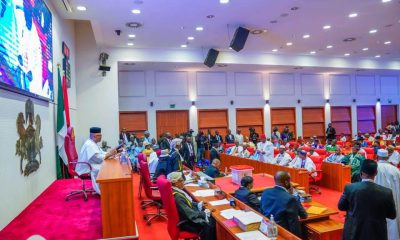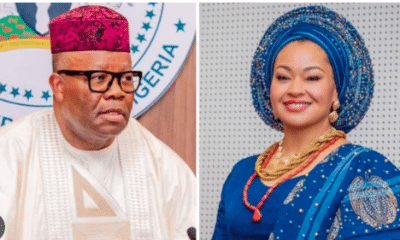Nigeria News
Minimum Wage Dilemma: States May Go Bankrupt, FEC Delays Decision

The Federal Executive Council (FEC) recently postponed a decision on the new minimum wage report from the tripartite committee, opting for further consultations amid concerns that many states could go bankrupt if the proposed wage increases are implemented.
The FEC’s hesitance comes as President Bola Tinubu prepares to present the minimum wage bill to the National Assembly, an announcement that has stoked tensions across various states.
Last week’s discussions at both the National Economic Council, chaired by Vice President, Kashim Shettima, and the Southern Governors’ Forum failed to yield a consensus on the wage structure, with the governors suggesting that wage negotiations should be state-specific.
The labour unions have criticized the Nigeria Governors’ Forum for their significant sway in the wage negotiations, arguing that the proposed wages could push states towards financial insolvency.
A report from the Nigeria Governors’ Forum Secretariat highlighted that increased recurrent expenditures have already strained budgets, leaving states like Abia, Ekiti, and Kogi in deficits as of 2022.
The proposed ₦62,000 minimum wage, more than double the current ₦30,000, could destabilize state finances further, potentially leading only ten states, including Lagos and Rivers, to remain financially stable.
According to the documents, sighted by Punch, Abia, with an employment size of about 58,631 workers, pays ₦5,837,899,980.40 as wage monthly. Anambra has a 20,541 employment size and pays ₦1,824,851,308.96 monthly as wages, apart from ₦894,480,399.62 as pension obligation and ₦579,694,680.33 for debt servicing.
Bayelsa boasts of 48,213 workforce, paying ₦5,802,435,178.58 monthly, with ₦1,194,528,784.40 as pension obligation and ₦3,535,787,992.48 as debt servicing, totalling ₦10,532,751,955.46 as total recurrent expenditure monthly.
Benue has about 13,366 workers in its workforce and pays ₦2,040,184,471.85 as monthly wage, ₦76,838,634.62 for pension, and ₦64,685,126,826.08 for debt servicing, totalling ₦66,802,149,932.56 monthly.
Delta has about 50,871 workers, offering ₦8,973,081,853.50 as wages ₦1,499,886,303.39 as pension, and ₦72,417,433,139.00 as debt servicing, accumulating to ₦82,890,401,295.89 in a month.
Jigawa has about 44,831 workers in its employ and pays ₦2,795,662,113.02 as wages, and ₦345,987,843.12 as a pension, totalling ₦3,141,649,956.14 monthly on recurrent expenditure.
Katsina, Kwara and Niger have 19,062, 36,048 and 22,225 workers, with accumulated ₦139,294,944,565.27, ₦4,457,268,675.54 and ₦2,653,614,213.35 monthly recurrent expenditure respectively.
According to the document, Abia has a total recurrent expenditure of ₦111,983,979,958.62, against a total revenue of ₦147,637,730,867.73.
For Adamawa, the recurrent expenditure stands at ₦70,369,399,885.57, against a total revenue of ₦109,722,949,684.65, while Akwa Ibom boasts of a high revenue of ₦444,288,683,000, with recurrent expenditure of ₦235,144,539,000.
Of the states, Lagos has the highest total revenue, amassing ₦1,243,778,878,170 in 2022, with a recurrent expenditure of ₦621,043,036,000, followed by Delta, with ₦702,020,717,460.08 and a recurrent expenditure of ₦377,905,100,451.83.
Rivers amassed ₦525,588,159,714.88 in 2022, with recurrent expenditure of ₦186,974,715,774.87; Kaduna had a total revenue of ₦222,349,875,000 and expenditure of ₦95,987,999,472.10; Ogun, ₦297,249,009,626.83, recurrent expenditure of ₦178,519,010,628.42 and Oyo, with total revenue of ₦247,156,776,739.70 and recurrent expenditure of ₦152,077,804,384.65.
Kebbi State had the lowest total revenue in 2022, raking in ₦92,132,444,588.16 and spent ₦57,601,464,374.96 on recurrent expenditure, followed by Taraba, with a total revenue of ₦101,177,283,069.87 and recurrent expenditure of ₦75,055,201,412.62.
Aside from FAAC allocation, some states recorded poor IGR in the 2022 data compiled by the NGF Secretariat.
Zamfara State generated ₦6,513,960,477.20; followed by Kebbi, with ₦8,630,767,122.96; Taraba, ₦9,744,331,840.01 and Yobe State, with ₦9,940,554,642.00.
The IGR of Katsina (₦12,821,119,042.64), Adamawa (₦13,175,774,969.53), Niger (₦14,427,373,136.00), Benue (₦15,021,223,729.38), Plateau (₦15,927,001,739.90) and Imo (₦16,711,346,111.18) also showed a poor revenue standing.












